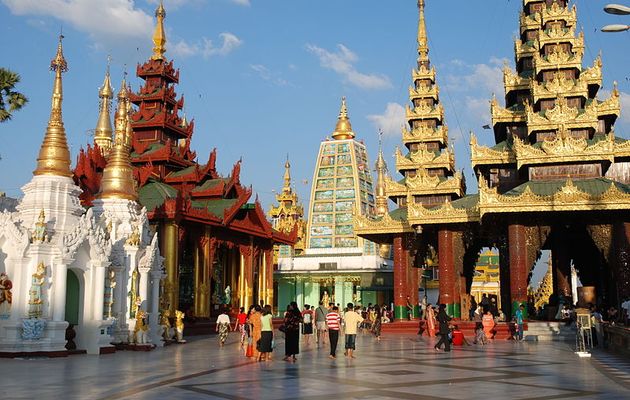Rebels in Burma who closed more than 100 churches, allow the reopening of 51
Ethnic Wa rebels closed the churches in September 2018, destroyed at least 10 church buildings and detained more than 200 Christians who were later released.
YANGON · 27 DECEMBER 2019 · 10:13 CET

Ethnic rebels who closed more than 100 churches in eastern Burma (Myanmar) in 2018, have allowed 51 Baptist churches to reopen, sources said.
Ethnic Wa rebels of the United Wa State Army (UWSA) this week announced they had permitted 51 Baptist churches to reopen in northern Shan state, after investigating the congregations and their activities for 14 months.
The review process is still underway for the remaining churches, according to UWSA officials.
At least 10 church buildings were destroyed when UWSA troops closed the churches in September 2018 and detained more than 200 Christians who were later released after investigation.
“PEOPLE WHO WORK AT THE CHURHES WERE VERY EXTEME”
“We are investigating the rest of the churches. We shut down the churches because some people who work at the churches were very extreme”, Nyi Rang, in-charge of UWSA’s liaison office in Lashio town, northern Shan state, told Morning Star News.
“In some places, there were a few houses. But there were many churches. It created disunity with local ethnic communities”, he addded.
The General Secretary of Lahu Baptist Convention, identified only as the Rev. Lazarus, said the churches were not “extreme.”
“I don’t think churches and our religious activities create division and problems, because we have churches that belong to ethnic Wa, Kachin, Lahu, Ahkar and Lisu. There could be other reasons to shut down the churches”, Lazarus told Morning Star News.
The re-opened churches are located in Shan state’s Panghsang, Hopang, Kho Pang and Namphan townships, he said.
PAGAN WORSHIP
Most of the population in the Wa region bordering China worships spirits, called Nats. Many ethnic races such as the Lahu, Ahkar, Kachin, Lisu, as well as some Wa, however, are Christian. There are some Buddhists in the region.
The UWSA is Burma’s largest ethnic armed group, with an estimated 30,000 soldiers. Its leaders have communist views, a reflection of their long-time proximity to the Chinese border.
CHURCHES BUILT AFTER 1992 WILL BE DESTROYED
Lazarus said denomination officials “are very happy, and we thank the Wa authorities for allowing us to reopen the churches,” Lazarus said. “We hope that they will also reopen the rest of closed churches.”
The Lahu Baptist Convention released a statement on Sept. 25, 2018, asserting that some Lahu students detained by the UWSA were forced to serve as UWSA soldiers.
Earlier that month, UWSA troops shut down at least 10 churches, including six belonging to Kachin Baptist Convention.
All church buildings constructed after 1992 would be destroyed or shut down as they were built without permission of UWSA’s leaders, the group said in a Sept. 13, 2018 press statement.
A UWSA-run television program stated that the rebel group had arrested and interrogated religious leaders for violating organization regulations and laws prohibiting foreigners to serve as religious leaders in Wa-controlled areas.
Christian leaders have said the militants, who predominantly follow tribal religions, seek to reduce the spread of Christianity.
UNITED WA STATE ARMY
The UWSA is the military wing of the United Wa State Party (UWSP), the de facto ruling party of the area. It was formed after the collapse of the armed wing of the Communist Party of Burma in 1989.
The UWSA announced its territory as the Wa State Government Special Administrative Region on Jan. 1, 2009, and although the government of Burma does not officially recognize its sovereignty, the Burmese military has fought alongside the UWSA against Shan nationalist militias.
Though de facto independent from Burma, the Wa state officially recognizes Burma’s sovereignty over all of its territory, and in 2013 the two parties signed a peace deal.
Burma is about 80% Buddhist and 9% Christian.
The country is ranked 18th on Christian support organization Open Doors’ 2019 World Watch List of the countries where it is most difficult to be a Christian.
Published in: Evangelical Focus - world - Rebels in Burma who closed more than 100 churches, allow the reopening of 51
